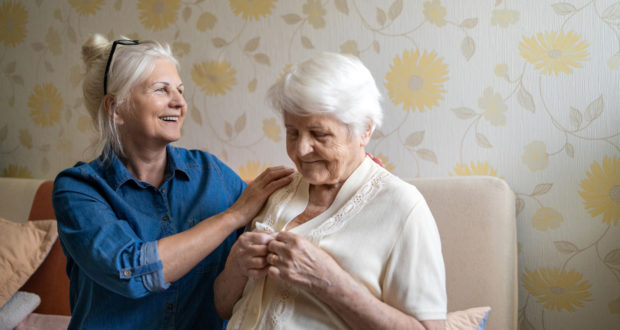The first large scale government report on dementia in Australia was released today to mark the start of Dementia Action Week (September 20-26).
Dementia in Australia, carried out by the Australian Institute of Health and Welfare (AIHW), is the first report on dementia since 2012 and provides the latest statistics on population health impacts, carers and care needs, health and aged care service use and direct expenditure in relation to dementia.
Dementia accounted for 9.5 per cent (14,700) of all deaths in Australia in 2019.
"[Dementia] is our second leading cause of death in Australia, behind coronary heart disease. Most likely it will soon become Australia's leading cause," said AIHW chief executive Rob Heferen.
One in 12 Australians aged 65 and over are living with dementia, and this increases to 2 in 5 Australians aged 90 and over. Two-thirds of all people with dementia are women.
The rate of dementia among Indigenous Australians is estimated to be 3–5 times as high as the rate for Australians overall. It was the 5th leading cause of death for Indigenous Australians in 2019.
Care is becoming increasingly costly with $3 billion of health and aged care spending directly attributable to dementia, including $1.7 billion on residential aged care services, $596 million on community-based aged care services and $383 million on hospital services.
In 2018–19 there were around 23,200 hospitalisations due to dementia, with 13 days the average length of stay – almost 5 times longer than the average hospitalisation that year.
Between 2012–13 and 2019–20 there was a 43 per cent increase in the number of scripts dispensed for dementia-specific medications.
Over half of all aged care residents are believed to have dementia.
The study also highlights the role of the carer in Australia.
It estimates that up to 337,200 Australians are providing constant unpaid care for a person with dementia, with over half of primary carers providing an average of 60 or more hours of unpaid care each week.
One in three of those carers have had to reduce working hours to care for loved ones, and one in four said more respite care was needed to support them.
The report was launched in an online event by Aged Care Services minister Richard Colbeck, along with Dementia Australia chief executive Maree McCabe, AIHW ceo Rob Heferen and dementia advocate Natalie Ive.
The report features many real stories of people impacted by dementia.
Ive, who has young onset dementia, is a mother of two, former educator and dementia advocate with primary progressive aphasia.
She told the attendees about her struggle with her original diagnosis. She also talked about her struggle with a hospital system which left her feeling "alone" as she lost her ability to speak at times, and she felt she wasn't "being heard, or trusted by these people who were supposed to help".
"Even if they didn't believe at first, some of those doctors definitely needed a course in sympathy and effective communication."
She said she was left with nowhere to go and had to search for a solution by herself.
She eventually found Dementia Australia and credits them with giving her purpose in life.
"I have found purpose once again with my advocacy work. I have been able to find support I needed through friendships."
One issue raised through the report's launch was the lack of solid data when it comes to dementia.
The report estimates that anywhere between 386,200 and 472,000 Australians have dementia in 2021 and this number is expected to rise to more than 849,300 by 2058.
A more solid data set would better prepare Australia for a future with an ageing population and a higher rate of people with dementia.
"Better data about the experiences of Australians living with dementia and the people who care for them are essential and these can be used to improve policies and support services for those who need them most," McCabe said.
Do you have an idea for a story?Email [email protected]
 Aged Care Insite Australia's number one aged care news source
Aged Care Insite Australia's number one aged care news source

